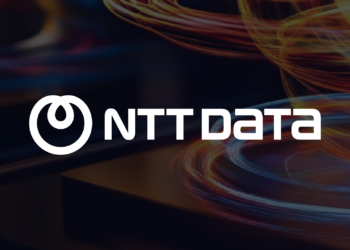With the Chinese government not giving the country’s tech giants a moment’s peace, Alibaba Group Holding is planning on burying the hatchet with longtime rival Tencent Holdings.
China’s e-commerce king, Alibaba, has long enjoyed strong earnings buoyed by its grip on the massive Chinese market. But its struggle to diversify and antitrust pressures have cast doubt over its ability to continue growing long term, especially as the company grapples with its first-ever quarterly loss since going public in 2014.
On Thursday, Alibaba, which was founded by outspoken billionaire Jack Ma, announced that it logged a 5.4 billion yuan ($839 million) net loss attributable to shareholders in Q1 of 2021, largely due to a more than 18.2 billion yuan anti-monopoly fine levied by Chinese authorities.

“We have stated that we accept the penalty with sincerity and will ensure our compliance with determination,” Chairman and CEO Daniel Zhang said in an earnings call that day.
However, Alibaba reported a record 150.3 billion yuan net profit for the full year ended March. “In fiscal 2022, we plan to invest all of our incremental profits and additional capital into supporting our merchants and developing new businesses and the key strategic areas that will help us increase consumer wallet share and penetrate into new addressable markets,” Chief Financial Maggie Wu said Thursday, highlighting Alibaba’s focus on creating long-term value.
How China’s tech giants are having to reevaluate their strategies is clear by Alibaba’s tie-up with Tencent Holdings, which became public this spring.
Tencent and Alibaba have led China’s tech industry since its early days. Though Tencent originally rose to prominence in games and social media, and Alibaba in e-commerce, the groups have aggressively snapped up various internet-based businesses and expanded into a range of customer-facing operations.
Creating unique online ecosystems is what both the company’s efforts are centered around, which grant members access to their extensive resources in smartphone-based payments, social media, and big data, but shut out others.
For example, most Alibaba-affiliated services do not take payments through Tencent’s WeChat messaging app and the Shenzhen-based Tencent blocks most Alibaba services from WeChat mini-programs.
But their rivalry seemed to come to a halt this spring when Alibaba Vice President Wang Hai signaled an interest in cooperating with Tencent. Now, on certain services, the companies are working together, and WeChat began offering a mini-program for Alibaba’s delivery app.
The move comes as Beijing cracks down on tech platforms with massive market shares, like Alibaba and Tencent. The pressure is working well to make the companies shift away from their ecosystem model designed to freeze out rivals. It is, however, unclear whether their new cooperation would help or hinder growth in the long run.
Alibaba and Tencent are only expected to face greater pressure to open up their platforms to emerging rivals, which have been frustrated by their anti-rival policies.
With Alibaba’s stock falling over 6% at one point in Hong Kong on Friday, concerns about its future have seeped into the market as well. The issue has fallen over 30% from its recent high, and Morgan Stanley in an April report warned of continued uncertainties surrounding Chinese internet regulations.








